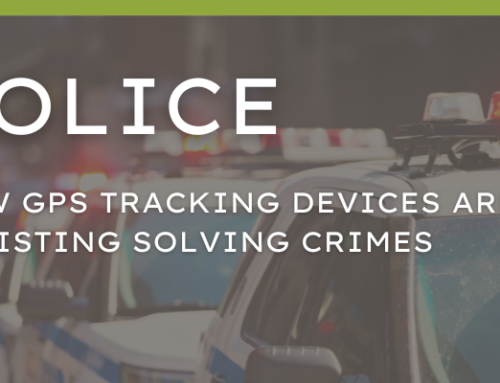Are you tired of constantly worrying about your vehicle’s whereabouts? Look no further! With our state-of-the-art GPS tracking devices, you can now easily stay one step ahead and track your vehicles efficiently.
Whether you’re a business owner managing a fleet or a concerned parent keeping an eye on your teenager’s car, our GPS tracking devices offer a reliable and user-friendly solution. By equipping your vehicles with these devices, you gain real-time access to their location, speed, and even their maintenance needs.
Our brand is renowned for its commitment to excellence and customer satisfaction. We understand the importance of accurate data, which is why our GPS tracking devices ensure pinpoint accuracy, thanks to advanced satellite technology. Stay in control, increase security, and maximize operational efficiency with our cutting-edge solutions.
Say goodbye to the headaches of missing vehicles or unauthorized use. With our GPS tracking devices, you can monitor your assets effortlessly, streamline your operations, and even reduce costs associated with theft or ineffective routing. Don’t be left in the dark – stay one step ahead with our reliable GPS tracking devices.
Benefits of using GPS tracking devices for vehicle tracking
When it comes to managing your fleet or keeping an eye on your loved ones’ vehicles, GPS tracking devices offer numerous benefits. Firstly, they provide real-time access to your vehicles’ location, allowing you to monitor their movements at any given time. This is particularly useful for business owners who need to ensure that their fleet is operating optimally or parents who want to track their teenager’s car for safety reasons.
Secondly, GPS tracking devices also provide valuable insights into your vehicles’ speed. This can help you identify any potential speeding issues, ensuring that your drivers are adhering to safe driving practices. By monitoring and addressing speeding incidents, you can improve overall road safety and reduce the risk of accidents.
Additionally, GPS tracking devices offer maintenance alerts, enabling you to stay on top of your vehicles’ maintenance needs. These alerts can help you schedule timely servicing, reducing the risk of breakdowns and prolonging the lifespan of your vehicles. By implementing proactive maintenance practices, you can save money on costly repairs and ensure that your vehicles are always in top condition.
Types of GPS tracking devices available in the market
The market offers a wide range of GPS tracking devices, each catering to specific needs and requirements. The most common types include plug-and-play devices, hardwired devices, and battery-powered devices.
Plug-and-play devices are the easiest to install as they simply plug into the vehicle’s OBD-II port. These devices are ideal for individuals who need a quick and hassle-free tracking solution. On the other hand, hardwired devices require professional installation and are typically used for fleet management purposes. They offer more advanced features, such as tamper detection and engine immobilization. Lastly, battery-powered devices are portable and can be easily moved from one vehicle to another. They are commonly used for personal tracking or temporary tracking needs.
How GPS tracking devices work
GPS tracking devices rely on a network of satellites to determine the exact location of a vehicle. These satellites communicate with the device, allowing it to calculate its position with high accuracy. The device then transmits this information to a central server, which can be accessed through a user-friendly mobile or web application.
The device collects data such as latitude, longitude, speed, and direction, providing real-time updates on the vehicle’s whereabouts. Some advanced GPS tracking devices also offer additional features like geofencing, which allows you to set virtual boundaries and receive alerts when the vehicle enters or exits a designated area.
Factors to consider when choosing a GPS tracking device
Selecting the right GPS tracking device for your needs is crucial to ensure optimal performance and functionality. Here are some key factors to consider:
1. Accuracy: Look for devices that offer high accuracy in location tracking. This will ensure that you receive precise and reliable information about your vehicles’ whereabouts.
2. Connectivity: Check the device’s connectivity options. Most GPS tracking devices use cellular networks to transmit data, so ensure that the device supports the network coverage in your area.
3. Battery Life: If you’re considering a battery-powered device, pay attention to its battery life. Longer battery life means less frequent recharging, providing uninterrupted tracking.
4. Ease of Use: Opt for a user-friendly interface that allows you to easily access and interpret the data provided by the tracking device. A well-designed mobile or web application can make a significant difference in your tracking experience.
5. Additional Features: Consider any additional features that may be important to you, such as geofencing, maintenance alerts, or driver behavior monitoring. Assess your specific needs and choose a device that offers the features that align with those requirements.
Installing and setting up GPS tracking devices
Installing a GPS tracking device depends on the type you choose. Plug-and-play devices usually require no professional installation and can be easily connected to the OBD-II port, which is typically located under the vehicle’s dashboard. On the other hand, hardwired devices may require the expertise of a professional installer, as they need to be connected to the vehicle’s electrical system.
Once the device is installed, setting it up involves registering the device with the manufacturer and creating an account for accessing the tracking platform. This step may require providing basic information about the vehicle and configuring any specific settings or preferences.
Features to look for in a GPS tracking device
When evaluating different GPS tracking devices, it’s important to consider the features they offer. Here are some features to look for:
1. Real-time tracking: Ensure that the device provides real-time updates on the vehicle’s location, speed, and other relevant data.
2. Geo-fencing: This feature allows you to set up virtual boundaries and receive alerts when a vehicle enters or exits a specified area. This can be particularly useful for monitoring unauthorized use or ensuring vehicles stay within designated areas.
3. Driver behavior monitoring: Some GPS tracking devices can monitor driver behavior, providing insights into speeding, harsh braking, and other unsafe driving habits. This feature can help you improve driver safety and reduce the risk of accidents.
4. Maintenance alerts: Look for devices that offer maintenance alerts, notifying you when a vehicle is due for servicing or when specific maintenance tasks need to be performed. This feature can help you optimize vehicle maintenance and prevent unexpected breakdowns.
Integrating GPS tracking devices with fleet management systems
For businesses managing a fleet of vehicles, integrating GPS tracking devices with fleet management systems can provide even greater benefits. Fleet management systems offer a comprehensive solution for monitoring and optimizing fleet operations. By integrating GPS tracking devices, you can seamlessly track your vehicles’ location, performance, and maintenance needs within a single platform.
These systems provide advanced reporting and analytics capabilities, allowing you to analyze data and identify areas for improvement. With features like route optimization, driver performance monitoring, and fuel consumption tracking, you can streamline your operations, reduce costs, and improve overall efficiency.
Best practices for using GPS tracking devices effectively
To make the most of your GPS tracking devices, consider implementing the following best practices:
1. Clearly communicate with employees or family members: If you’re using GPS tracking devices for business purposes, it’s essential to communicate with your employees about the implementation and purpose of the devices. This fosters transparency and trust within the organization. Similarly, if you’re tracking a family member’s vehicle, ensure open and honest communication to maintain a healthy relationship.
2. Establish policies and guidelines: Develop clear policies and guidelines for the use of GPS tracking devices. This includes defining acceptable use, privacy boundaries, and consequences for misuse. Clear guidelines help set expectations and ensure that the devices are used responsibly.
3. Regularly review and analyze data: Take advantage of the data collected by the GPS tracking devices. Regularly review and analyze the information to identify trends, areas for improvement, and potential cost-saving opportunities. By leveraging the data, you can make informed decisions that lead to better operational efficiency.
4. Educate drivers or family members: Provide training and education on the benefits and functionalities of GPS tracking devices. Ensure that drivers or family members understand how to use the devices effectively and how the data collected can be used to improve safety, efficiency, and overall performance.
Conclusion and final thoughts on GPS tracking devices for vehicle tracking
In conclusion, GPS tracking devices offer a reliable and user-friendly solution for efficiently tracking vehicles. Whether you’re a business owner or a concerned parent, these devices provide invaluable insights into your vehicles’ location, speed, and maintenance needs. With advanced features like geofencing, driver behavior monitoring, and maintenance alerts, you can enhance security, streamline operations, and reduce costs associated with theft or ineffective routing.
When choosing a GPS tracking device, consider factors such as accuracy, connectivity, battery life, ease of use, and additional features. Install and set up the device according to the manufacturer’s instructions, and familiarize yourself with the features it offers. If you’re managing a fleet, consider integrating GPS tracking devices with fleet management systems for a more comprehensive solution.
By following best practices and leveraging the data collected by the GPS tracking devices, you can make informed decisions, improve operational efficiency, and ultimately stay one step ahead. Don’t let the worry of missing vehicles or unauthorized use keep you in the dark – invest in reliable GPS tracking devices and enjoy peace of mind knowing that you can track your vehicles efficiently.





